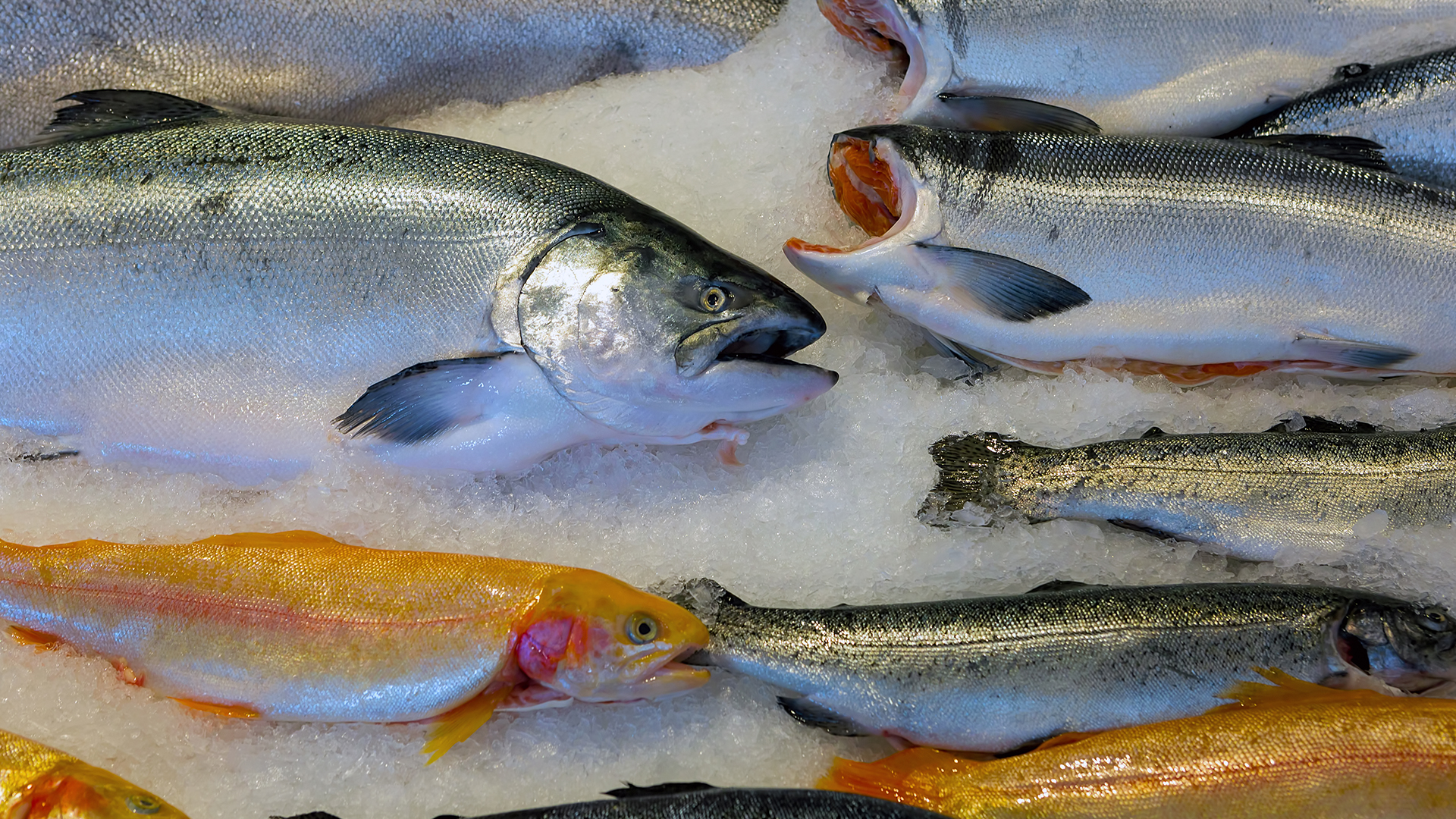Why is fish so smelly?
Fish smell is from degrading lipids and bacterial reactions that increase in potency over time.

Get the world’s most fascinating discoveries delivered straight to your inbox.
You are now subscribed
Your newsletter sign-up was successful
Want to add more newsletters?

Delivered Daily
Daily Newsletter
Sign up for the latest discoveries, groundbreaking research and fascinating breakthroughs that impact you and the wider world direct to your inbox.

Once a week
Life's Little Mysteries
Feed your curiosity with an exclusive mystery every week, solved with science and delivered direct to your inbox before it's seen anywhere else.

Once a week
How It Works
Sign up to our free science & technology newsletter for your weekly fix of fascinating articles, quick quizzes, amazing images, and more

Delivered daily
Space.com Newsletter
Breaking space news, the latest updates on rocket launches, skywatching events and more!

Once a month
Watch This Space
Sign up to our monthly entertainment newsletter to keep up with all our coverage of the latest sci-fi and space movies, tv shows, games and books.

Once a week
Night Sky This Week
Discover this week's must-see night sky events, moon phases, and stunning astrophotos. Sign up for our skywatching newsletter and explore the universe with us!
Join the club
Get full access to premium articles, exclusive features and a growing list of member rewards.
Fish are notorious for their strong — and sometimes unpleasant — odor. But what causes that distinctly fishy smell, and is there a way to avoid it while cooking?
Fish odor is the result of microbial and chemical reactions that occur as fish proteins and fats are exposed to heat and oxygen over time.
Fresh fish should have a mild scent similar to the salty smell of the ocean. It should "smell kind of like seaweed," said Eric Decker, a professor in the Department of Food Science at the University of Massachusetts Amherst.
Strong, fishy odors beyond this are the first signs of spoilage. Bacterial growth is usually the first culprit. It could be several days from when the fish is caught to when it reaches the supermarket. In that time, bacteria that grow naturally in fish start to consume an organic compound called trimethylamine N-oxide (TMAO), which is found naturally in many fish, especially cold-water species.
"It's kind of like an antifreeze for fish that live in cold water," Decker told Live Science.
Related: Do fish get thirsty?
These psychrophilic — or cold-loving — bacteria convert TMAO to trimethylamine (TMA), the molecule responsible for the signature fishy, ammonia-like smell. Cold-water species, like cod and haddock, may develop this smell from TMA faster than others, Decker said.
Get the world’s most fascinating discoveries delivered straight to your inbox.
Fishy odor may also come from enzymes that break down once the fish is caught. Bacteria in fish flesh convert lysine, an amino acid, into cadaverine, a molecule that's associated with decomposing animals, according to the American Chemical Society.
Chemical reactions can also lead to fishy odors. This happens through the oxidation of lipids, or fat. Fish are an important source of omega-3 fatty acids. When these fats are exposed to oxygen, they oxidize and decompose into smaller, volatile molecules that you can smell, Decker explained.
But usually, bacterial spoilage leading to TMA and cadaverine happens faster than lipid oxidation in fresh fish, Decker said.
To slow down the bacterial growth — and thus the fishy smell — focus on two factors. "Time is number one; temperature is number two," Carl Batt, a professor of food science at Cornell University, told Live Science.
The less time between when the fish is caught and when it reaches the kitchen, the better. But today, fish are often flown across the globe. To keep smell-producing bacteria at bay, the fish must be frozen or kept at the lowest temperature possible as soon as it is caught and cleaned.
To continue this cold chain to the home kitchen, Decker recommended mimicking a good fishmonger. "Put some ice in a bowl, put the fish on the ice and put it in your refrigerator," he said. "That's going to slow the bacterial growth."
Controlling lipid oxidation is a harder task for fattier fish species. While freezing slows bacterial growth, it does not stop lipid oxidation. This reaction will occur as long as oxygen is present. To ensure the freshest fish, look for vacuum-packed and frozen fish where both temperature and oxygen are low. Vacuum-packed, frozen fish may be the best options for people living far from fishing sources.
Low-fat fish — like cod, haddock and flounder — are best for freezing because microbial spoilage will likely happen first. Freezing delays that process, Decker said . But particularly fatty fish — like mackerel, blue fish and herring — are usually not frozen because, despite the cold temperature, "they're going to oxidize pretty fast," he said, and thus start to spoil and smell unless they are stored in a low oxygen container.
That's why those latter species are often canned: because that preservation technique removes most oxygen and stops lipid oxidation.
Even after you cook fresh fish, odors could grow if leftovers aren't eaten quickly. "Cooking any meat makes oxidation go faster," Decker said. That doesn't mean the fish is bad, but the flavor will probably be affected after a day or two as the fish amino acids continue to oxidize in the fridge.
It's also important to remember that smell is not always an indicator of safety, especially in processed fish products. "What you might consider the fishy smell may be a delicacy in another culture," Batt said, referring to fermented fish products such as garum, a fish sauce popular in ancient Rome.
But to err on the side of safety, you can check the Danish National Food Institute's Food Spoilage and Safety Predictor before you dig in.

Hannah Loss is a science journalist based in Boston. She covers the environment and has written for Scientific American, Sierra and Inside Climate News. Hannah graduated from Tufts University with a B.A. in English and environmental studies. She received a Master's degree in journalism from NYU's Science, Health and Environmental Reporting Program.
 Live Science Plus
Live Science Plus










